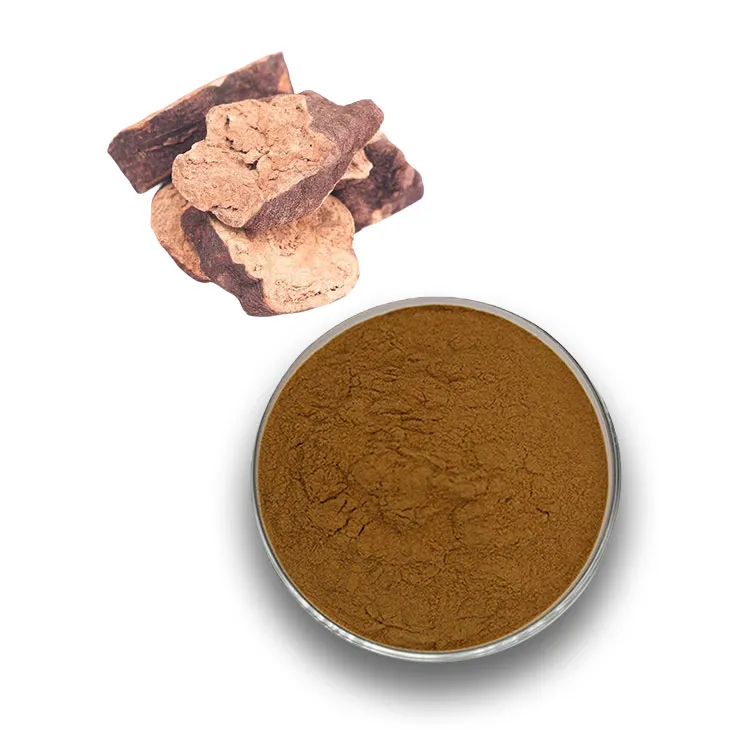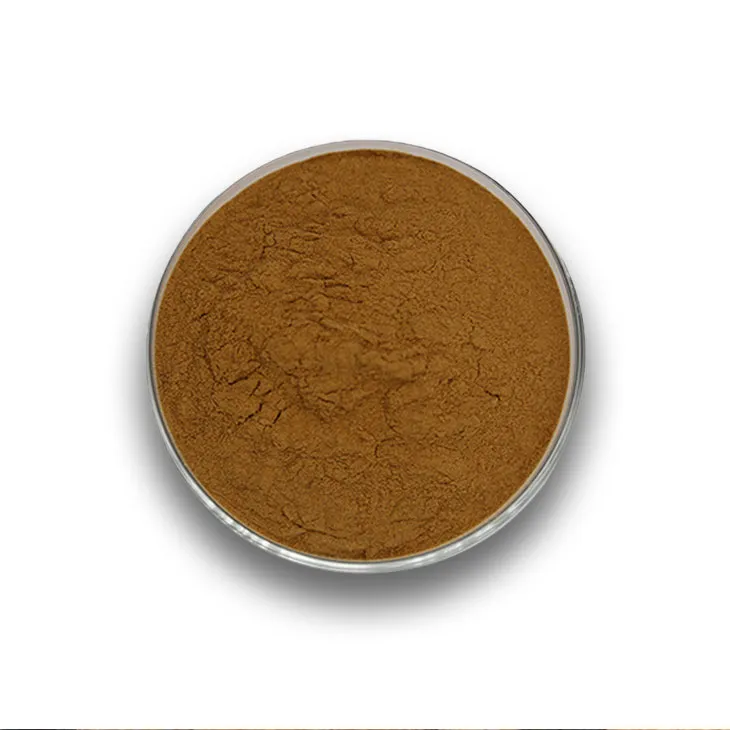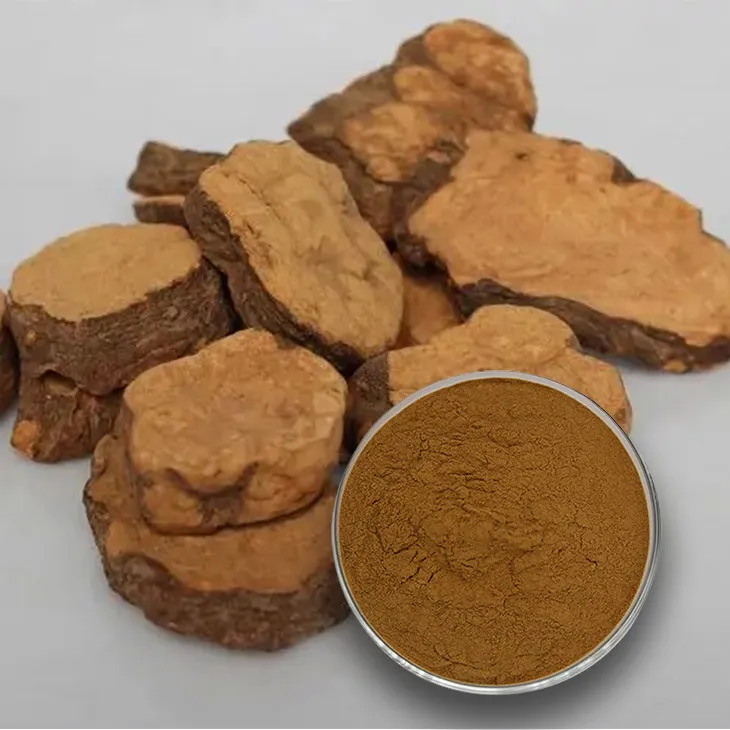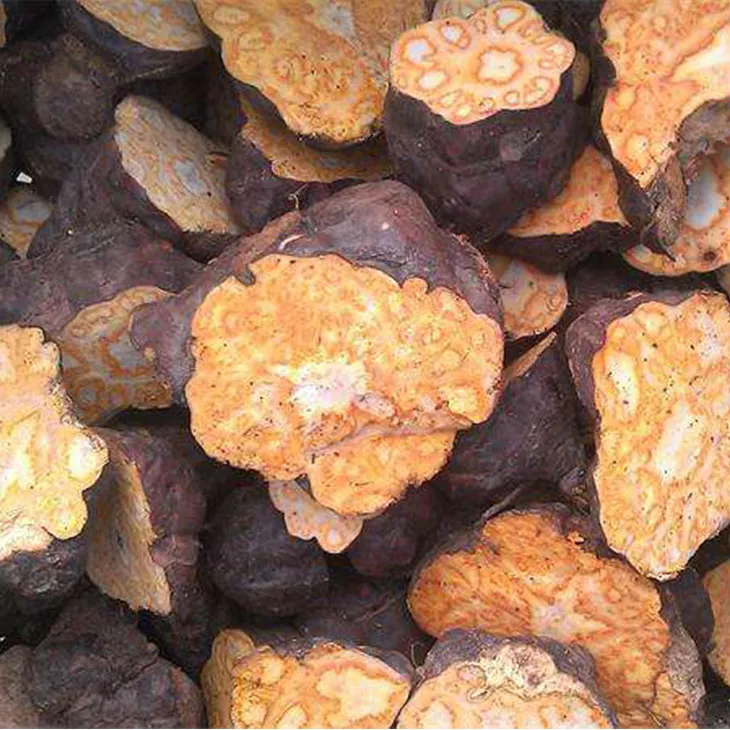- 0086-571-85302990
- sales@greenskybio.com
Use polygonum multiflorum extract? Make sure you source from sustainable suppliers!
2024-12-12

1. Introduction to Polygonum multiflorum extract
Polygonum multiflorum extract has been highly regarded in a multitude of fields. In traditional medicine, it has a long - standing history of use. It is believed to possess various medicinal properties, such as promoting hair growth, improving liver function, and enhancing antioxidant capabilities. In the cosmetics industry, it is also a popular ingredient. Products containing Polygonum multiflorum extract are often marketed for their potential to improve skin health, reduce wrinkles, and give a youthful glow.

2. The Importance of Sustainable Sourcing
2.1 Biodiversity Conservation
Polygonum multiflorum is a plant species that is an integral part of the ecosystem. Sustainable suppliers are crucial for the conservation of biodiversity. When suppliers harvest Polygonum multiflorum in a sustainable manner, they ensure that the plant population remains stable. This is in contrast to irresponsible harvesting, which can lead to a significant reduction in the number of Polygonum multiflorum plants in the wild. For example, if too much of the plant is harvested without proper management, it can disrupt the ecological balance. Insects and animals that rely on Polygonum multiflorum for food or shelter may face a shortage of resources, and this can have a ripple effect throughout the entire ecosystem.
2.2 Avoiding Over - exploitation
By sourcing from sustainable suppliers, companies can play an important role in preventing over - exploitation of Polygonum multiflorum. Over - exploitation is a serious problem that has affected many plant species around the world. When a plant is over - exploited, it not only endangers the survival of the species itself but also the livelihoods of those who depend on it in the long - term. For instance, if the Polygonum multiflorum extract industry grows too rapidly without sustainable practices, it may lead to the depletion of the plant in the wild. This would be a great loss for traditional medicine practitioners and the cosmetics industry alike, as they would lose a valuable ingredient source.
2.3 Quality Control
Sustainable supply chains often have better quality control mechanisms in place. This is of utmost importance when it comes to Polygonum multiflorum extract. A sustainable supplier is more likely to follow strict harvesting and processing procedures. These procedures ensure that the extract is pure and free from contaminants. For example, sustainable suppliers may use proper drying techniques to prevent mold growth during the processing of Polygonum multiflorum. In addition, they may also conduct regular quality tests to check for the presence of heavy metals or other harmful substances. This is vital for the safety and effectiveness of products that contain Polygonum multiflorum extract. If the extract is contaminated, it can pose risks to the health of consumers who use products made with it.

3. How to Identify Sustainable Suppliers
3.1 Certification and Standards
One of the key ways to identify sustainable suppliers is by looking at their certifications and compliance with industry standards. There are several recognized certifications that indicate a supplier's commitment to sustainable practices. For example, some suppliers may be certified by organizations that focus on environmental protection and sustainable development. These certifications often require suppliers to meet certain criteria, such as using sustainable harvesting methods, minimizing environmental impact during processing, and ensuring fair labor practices. When considering a supplier of Polygonum multiflorum extract, it is important to check if they hold relevant certifications.
3.2 Transparency in the Supply Chain
A sustainable supplier should be transparent about their supply chain. This means that they should be able to provide information about where the Polygonum multiflorum is sourced from, how it is harvested, and what processing methods are used. Transparency allows companies and consumers to have a clear understanding of the origin and quality of the extract. For example, a transparent supplier may be able to show that their Polygonum multiflorum is sourced from a specific region where sustainable harvesting practices are in place. They may also be able to provide details about the farmers or collectors who are involved in the harvesting process, ensuring that ethical and sustainable practices are being followed at every step of the supply chain.
3.3 Reputation and Track Record
The reputation and track record of a supplier are also important factors to consider. A supplier with a good reputation is more likely to be reliable and committed to sustainable practices. You can look at reviews and testimonials from other customers who have used their Polygonum multiflorum extract. Additionally, a long - standing track record in the industry can indicate that the supplier has a stable business model and is more likely to follow sustainable practices over time. For example, a supplier that has been in business for many years and has a positive reputation among its peers is more likely to be a sustainable option compared to a new and untested supplier.

4. The Benefits for Companies and Consumers
4.1 For Companies
For companies that use Polygonum multiflorum extract in their products, sourcing from sustainable suppliers brings several benefits. Firstly, it helps to enhance their corporate social responsibility (CSR) image. In today's market, consumers are increasingly concerned about the environmental and social impact of the products they buy. By using extract from sustainable sources, companies can show their commitment to sustainable development, which can attract more environmentally - conscious consumers. Secondly, it can also reduce the risk of supply disruptions. If a company sources from sustainable suppliers, they are more likely to have a stable supply of high - quality Polygonum multiflorum extract. This is because sustainable suppliers are more likely to manage their resources in a way that ensures long - term availability.
4.2 For Consumers
Consumers also benefit from products made with Polygonum multiflorum extract sourced from sustainable suppliers. As mentioned earlier, sustainable sourcing ensures that the extract is of high quality and free from contaminants. This means that consumers can use products containing the extract with more confidence, knowing that they are safe and effective. Additionally, consumers who are concerned about environmental and ethical issues can feel good about purchasing products that support sustainable practices. For example, a consumer who is passionate about biodiversity conservation may be more likely to choose a cosmetic product that uses Polygonum multiflorum extract from a sustainable supplier.

5. Challenges in Sourcing from Sustainable Suppliers
5.1 Cost Considerations
One of the main challenges in sourcing from sustainable suppliers is the cost. Sustainable practices often require additional investment, such as in proper harvesting equipment, quality control measures, and certification processes. As a result, the cost of Polygonum multiflorum extract from sustainable suppliers may be higher compared to non - sustainable sources. This can be a deterrent for some companies, especially those operating on tight budgets. However, it is important to note that in the long - term, the benefits of sustainable sourcing, such as a stable supply and positive brand image, may outweigh the initial cost differences.
5.2 Limited Availability
Another challenge is the limited availability of Polygonum multiflorum extract from sustainable sources. Since sustainable harvesting practices are more restrictive compared to non - sustainable ones, the quantity of extract available may be lower. This can pose a problem for companies with high - volume production requirements. They may need to search for multiple sustainable suppliers or work with suppliers to increase production capacity in a sustainable way. However, as the demand for sustainable products grows, it is expected that the availability of sustainable Polygonum multiflorum extract will also increase over time.
6. Conclusion
Polygonum multiflorum extract is a valuable ingredient in various industries. However, when using it, it is essential to source from sustainable suppliers. Sustainable suppliers contribute to biodiversity conservation, prevent over - exploitation, and ensure better quality control. Although there are challenges in sourcing from sustainable suppliers, such as cost and limited availability, the benefits for both companies and consumers are significant. By identifying sustainable suppliers through certifications, transparency, and reputation, companies can make a positive impact on the environment and society while also ensuring the safety and effectiveness of their products. Consumers, on the other hand, can support sustainable practices by choosing products made with Polygonum multiflorum extract from sustainable sources.
FAQ:
1. Why is it important to source Polygonum multiflorum extract from sustainable suppliers?
It is important because sustainable suppliers contribute to biodiversity conservation. Since Polygonum multiflorum is a part of the ecosystem, over - exploitation can be avoided by sourcing from them. Also, sustainable supply chains usually have better quality control, which guarantees the purity and freedom from contaminants of the extract, crucial for safety and effectiveness.
2. How can one identify a sustainable supplier of Polygonum multiflorum extract?
One can look for suppliers who have certifications related to sustainable sourcing. These might include environmental management system certifications. Also, a sustainable supplier is likely to be transparent about their sourcing methods, such as providing information on where the Polygonum multiflorum is harvested, and whether they follow ethical and legal harvesting practices. They may also have a track record of working towards conservation efforts in the regions where the plant is sourced.
3. What are the risks of using Polygonum multiflorum extract from non - sustainable sources?
The risks include contributing to the over - exploitation of the Polygonum multiflorum plant, which can harm the ecosystem. There is also a higher chance of getting an impure extract with contaminants from non - sustainable sources. This can pose risks to the safety and effectiveness of products using the extract, such as in traditional medicine or cosmetics.
4. Are there any regulations regarding the sustainable sourcing of Polygonum multiflorum extract?
There may be some regional and international regulations and guidelines. For example, some countries may have laws on the legal harvesting of wild plants to ensure their conservation. In the international trade context, there could be agreements or guidelines related to sustainable trade of herbal products. However, the enforcement and comprehensiveness of these regulations may vary.
5. How does sustainable sourcing of Polygonum multiflorum extract benefit the end - products?
It benefits the end - products in terms of quality and safety. A pure and contaminant - free extract from sustainable sources ensures that the end - products, whether it's a traditional medicine or a cosmetic, are more likely to be effective and safe for use. It also gives the products a positive image in terms of environmental and ethical considerations, which can be appealing to consumers.
Related literature
- Sustainable Sourcing of Medicinal Plants: A Review"
- "The Importance of Sustainable Supply Chains in the Herbal Extract Industry"
- "Polygonum multiflorum: Conservation and Sustainable Use"
- ▶ Hesperidin
- ▶ Citrus Bioflavonoids
- ▶ Plant Extract
- ▶ lycopene
- ▶ Diosmin
- ▶ Grape seed extract
- ▶ Sea buckthorn Juice Powder
- ▶ Fruit Juice Powder
- ▶ Hops Extract
- ▶ Artichoke Extract
- ▶ Mushroom extract
- ▶ Astaxanthin
- ▶ Green Tea Extract
- ▶ Curcumin
- ▶ Horse Chestnut Extract
- ▶ Other Product
- ▶ Boswellia Serrata Extract
- ▶ Resveratrol
- ▶ Marigold Extract
- ▶ Grape Leaf Extract
- ▶ New Product
- ▶ Aminolevulinic acid
- ▶ Cranberry Extract
- ▶ Red Yeast Rice
- ▶ Red Wine Extract
-
Senna Leaf Extract
2024-12-12
-
Yam Extract
2024-12-12
-
Lycopene
2024-12-12
-
Chasteberry Extract
2024-12-12
-
Lavender Extract
2024-12-12
-
Mulberry leaf Extract
2024-12-12
-
Aguaje Extract
2024-12-12
-
Saffron Extract Powder
2024-12-12
-
Troxerutin
2024-12-12
-
Green Tea Extract
2024-12-12





















